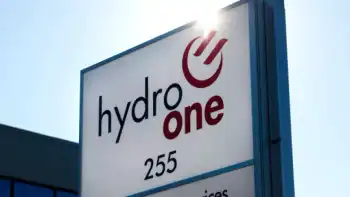Intel rolls out atom-sized chips
By Reuters
Arc Flash Training CSA Z462 - Electrical Safety Essentials
Our customized live online or in‑person group training can be delivered to your staff at your location.

- Live Online
- 6 hours Instructor-led
- Group Training Available
The low-power, tiny Atom chips will come in speeds of up to 1.86 gigahertz and Intel says that speed, plus other technologies designed into the chip, make it the fastest processor that consumes 3 watts of electricity or less.
The recently named Atom family of processors is part of Intel's effort to have chips designed with Intel Architecture - the fundamental blueprint of its semiconductors - in myriad computing devices - from what it calls mobile Internet devices, or MIDs, all the way up to high-performance computers.
Intel is making the announcements at its Intel Developer Forum conference on Wednesday in Shanghai, the company said.
"Global Internet growth continues unabated," said Anand Chandrasekher, who runs Intel's Ultra Mobility Group. "The best Internet experience is still on the PC, but users want to carry that experience with them."
That is where the Atom and Centrino Atom, come in. The Centrino Atom also includes a single-chip with integrated graphics called Intel System Controller Hub that allows for PC-like capabilities and long battery life for devices that fit in a user's pocket.
"Intel is really pumping this category," said Roger Kay, an analyst with market research firm Endpoint Technologies Associates. "That said, mobile Internet is here. For them this is really a great potential business."
Intel said that the features of the Atom processor - the "brains" of an electronic device - and its system controller hub would help device makers create a range of MIDs with differing functions and designs.
Chandrasekher said major device makers are already planning to adopt Atom, with more than 20 manufacturers coming out with products using the processor. As far as MIDs, those will start shipping in May, he said.
He said Intel expects about 30 percent of those MIDs to have both WiFi - short range high-speed wireless Internet access - and WiMax - longer-range high-speed access designed into them.
MID device makers include Asus, Fujitsu, Lenovo, NEC, Panasonic, Samsung, Sharp and Toshiba, among others, and prices will probably average about $500, with some priced higher than that or lower, depending on the functions, Chandrasekher said in a telephone briefing ahead of his keynote speech at the IDF in Shanghai.
The small size of the Atom processor - the die of the chip is less than 25 square millimeters, or about a 10th of the low- cost Celeron desktop and notebook PC chip - also lets Intel target the embedded market.
Embedded chips are used in devices such as portable cash registers, robotics for industrial manufacturing, kiosks, patient monitoring and car "infotainment" systems.
The economics of the diminutive chip are appealing, Kay said, noting Intel gets nearly 2,700 Atom processors from a single dinner-plate-size silicon wafer.
He estimates Intel could yield about $30,000 per wafer with a gross margin of around 50 percent, not far off the gross margin of its mainstream PC chips. He put Intel's approximate cost-per-chip for Atom at about $11.
"If you start looking at that number, then the profitability of one of these things sold at $45, or even $160, they're fantastically profitable," Kay said.
Still, do not expect the MID and this new market to take off right out of the gate.
"The world often divides half way between the reality on the ground and where Intel would like it to go," Kay added. "It'll likely go a little more slowly than Intel would like."











